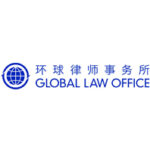-
What is the legal framework (legislation/regulations) governing bribery and corruption in your jurisdiction?
Chilean regulation regarding bribery and corruption consists in national legislation and international instruments.
The main legislation against corruption and bribery is set forth in the Código Penal (Criminal Code), Law No 18,575 on Public Administration, and Law No 18,834 on the Statute Applicable to Public Officials. All offences are laid down in legal texts.
For example, bribery is considered a crime in the Criminal Code (Articles 248 to 251 sexies), but the same conduct is also prohibited under laws which regulate the activity of domestic public officials (especially Law No 18,575 and Law No 18,834) and is considered an infringement of the probity and impartiality principles to which public officials are subject, which provide administrative sanctions for such conduct.
In addition, Law No 20,393 on the Criminal Liability of Legal Entities, is applicable to a specific -but long- list of offences, including among many others, the crimes of bribery, unlawful negotiation and commercial bribery.
It is also worth mentioning that Law No 21,595 on Economic Crimes includes commercial bribery within the first category of economic crimes, which under all circumstances will be considered economic crimes. Under the third category of economic crimes, this law contemplates crimes committed by public officials, such as bribery, when a member within a company has also intervened or a benefit has been reported for the company. The fact that these crimes are considered economic crimes is extremely relevant, as it entails the application of the special regime contemplated by this legislation.
Finally, Chile has signed up to several anti-bribery and anti-corruption international conventions, being the most relevant the Inter-American Convention Against Corruption of the Organization of American States (OAS), the Organisation for Economic Co-operation and Development (OECD) Convention on Combating Bribery of Foreign Public Officials in International Business Transactions, and the United Nations Convention Against Corruption.
-
Which authorities have jurisdiction to investigate and prosecute bribery and corruption in your jurisdiction?
The Public Ministry (the Chilean Public Prosecutor) is the public institution in charge of the investigation and prosecution of crimes under Chilean Criminal Law, although it receives the aid of the Chilean police forces to investigate.
Bribery and corruption cases are entrusted to special divisions of the beforementioned institutions, such as, the Highly Complex Prosecutor’s Office, the Specialized Unit in Anti-Corruption, Money Laundering and Internal Probity (UNAC) of the National Prosecutor’s Office and the Metropolitan Anti-Corruption Investigative Brigade (BRIACMET) of the Investigation Police.
-
How is ‘bribery’ or ‘corruption’ (or any equivalent) defined?
There is no legal concept of bribery or corruption, although several legal provisions punish acts of bribery and corruption.
Bribery is punished in different provisions of the Criminal Code (Articles 248, 248 bis, 249 and 250). This criminal conduct is defined as giving, offering or consenting to give an economic benefit or a benefit of any other nature. From the public officer’s perspective, it is receiving, offering to receive, or accepting receipt of that benefit, be it in favour of the employee or a third person. All these types of conduct must be related, in the original conception of the Criminal Code, to the performance or lack of performance by a public officer of an act according to their duties, against their duties, or a specific crime. However, Law No 21,121 included as a new provision a basic form of bribery consisting of the act of giving, offering, or consenting to give a benefit by reason of the position of the public employee, without requesting any conduct by the public officer as a counter performance for the benefit. In other words, the mere fact of granting/consenting to a benefit is sanctioned as bribery.
An exception is stated in Article 251 sexies, according to which some conduct – such as giving or offering protocol donations, or those of little economic value that are customarily given as manifestations of courtesy and good education – will not be considered as an offence.
Corruption legislation contemplates a wide catalogue of crimes regarding public officials; the most relevant are embezzlement of public funds, grant fraud and unlawful negotiation.
Embezzlement of public funds includes: (a) embezzlement by subtraction, which is a crime committed by a public employee who subtracts, or consents to the subtraction by another, from the funds or effects for which they are responsible (Article 233 of the Criminal Code); (b) reckless embezzlement, which is a crime committed by a public employee who, through inexcusable negligence or abandonment, provides an opportunity for another person to subtract the public or private funds or effects under their charge (Article 234 of the Criminal Code); and (c) embezzlement by distraction, which is a crime committed by a public employee who applies the proceeds or effects in their charge to their own use (Article 235 of the Criminal Code).
Grant fraud: it is a crime committed by a public employee who defrauds or consents to the defrauding of the state, municipalities or public educational or charitable institutions, whether by causing them loss or depriving them of legitimate profit, in operations in which they intervene by reason of their position (Article 239 of the Criminal Code).
Unlawful negotiation: this offence punishes public employees who directly or indirectly take an interest in any negotiation, action, contract, operation or management in which they may intervene because of their position. According to the prevailing doctrine, this provision establishes a crime of abstract danger, which is consummated by the mere execution of the conduct, without requiring verification of a result or damage to the fiscal patrimony (Article 240 No 1 of the Criminal Code).
-
Does the law distinguish between bribery of a public official and bribery of private persons? If so, how is 'public official' defined? Is a distinction made between a public official and a foreign public official? Are there different definitions for bribery of a public official and bribery of a private person?
Chilean Law distinguish between bribery of a public official and bribery of private persons, although the latter one is a recent addition to the legislation. None of them are defined by law, however, Chilean Criminal Law clearly establishes criminal conducts that will be prosecuted.
Article 260 of the Criminal Code contains a broad definition of public official, which applies to all offences committed by them. This concept extends to all those who exercise a “public function”, applying to all bodies created or dependent on the state. In this respect, it includes situations that clearly go beyond the restricted technical notion that administrative legislation confers to the term “public official”.
In 2009, the Criminal Code was amended to include the bribery of foreign public officials in the context of international business transactions as a criminal offence. It also constitutes an exception to the principle of territoriality generally applicable in Chile. In that regard, Chilean courts may have jurisdiction regarding the bribery of a foreign official committed abroad, either by a Chilean national or a foreigner with residence in Chile. The offence consists of offering or promising a benefit, of economic or any other nature, to a foreign public official in return for the foreign public official’s performance or omission of an act, thereby providing an unfair advantage in an international transaction (or business deal) to the offeror of the bribe.
The crime of bribery of private persons (or commercial bribery) was one of the main novelties brought about by Law No 21,121 in the year 2018. It punishes an employee or mandatary who requests or accepts an economic or other benefit, for themselves or for a third party, in order to favour or be favoured in the contracting of one bidder over another. It clearly has a reduced field of application compared to bribery of public officials.
-
Who may be held liable for bribery? Only individuals, or also corporate entities?
Traditionally, criminal liability in Chile has been conceived as a category applicable only to individuals as opposed to legal entities. However, in the context of Chile’s application to become a permanent member of the OECD, a political decision was made with Law No 20,393, which was enacted in 2009, introducing into the Chilean legal system the concept of corporate criminal liability. In 2023, Law No 21,595 on Economic Crimes -which entered in full effect in August of 2024- severely modified the corporate criminal liability and will enter.
Hence, legal entities may be investigated by the public prosecutor and be criminally sanctioned in cases where:
- the illegal conduct consists of certain specific crimes defined by law;
- the illegal act is perpetrated within the framework of its activity by or with the intervention of any natural person who occupies a position, function or position in it, or provides services by managing its affairs before third parties, with or without its representation; or the act has been perpetrated by or with the intervention of a natural person related in the terms provided with a different legal entity, provided that the latter provides services by managing its affairs before third parties, with or without its representation, or lacks operational autonomy at its regard, when there are property or participation relationships between them;
- the perpetration of the act is favored or facilitated by the lack of effective implementation of an adequate model for the prevention of such crimes; and
- the criminal act was not committed exclusively against the legal entity.
Since the enactment of Law No 20,393, the list of offences for which a company can be held criminally liable has been extended several times. Today, after the Law No 21,595 on Economic Crimes, companies may be criminally liable for more than two hundred crimes, such as, bribery, embezzlement, grant fraud, money laundering, financing of terrorism, receipt of stolen goods, disloyal management, commercial bribery, unlawful negotiation, misappropriation and illegal fishing activities.
The penalties for corporate entities, in the case of acts of bribery and embezzlement, include the imposition of fines (of up to approximately USD20 million for the worst cases), temporary prohibition to enter into contracts with government bodies and/or temporary loss of the right to receive government benefits, and even in some cases dissolution of the company. Law No 21,595 introduced the supervision of the legal entity and the confiscation of assets as available penalties.
-
What are the civil consequences of bribery and corruption offences in your jurisdiction?
Article 24 of the Criminal Code states that every conviction in criminal matters involves the obligation to pay litigation fees and costs, damages and losses caused by the perpetrators, accomplices, accessories and other legally responsible persons.
In 2023, Law No 21,595 on Economic Crimes established Article 24 bis of the Criminal Code, which states that convictions in criminal matters also involve the confiscation of profits of the crime. In this regard, through confiscation a person is deprived of the property assets whose value corresponds to the amount of profits obtained through the crime, either for or by perpetrating it.
-
What are the criminal consequences of bribery and corruption offences in your jurisdiction?
For individuals, penalties for bribery, embezzlement, grant fraud and unlawful negotiation depends on the criminal conduct as follows.
Bribery:
- For “bribery without counter-performance”, ie, a crime that consists of the mere act of giving, offering, or consenting to a benefit by reason of the position of the public employee, the penalty for the briber is 541 days to three years of imprisonment, where the benefit is offered or given; and 61 to 540 days, where the benefit is consented to. In addition, a fine equal to the benefit must be imposed (where the benefit is not an economic one, the fine is from 25 UTM to 250 UTM) and restriction from working as a public employee for a period of three years and one day up to five years.
- For bribery that consists of giving, offering or consenting to a benefit for a public official to perform or for having performed an act proper to their office, the briber will be punished with 541 days to five years of imprisonment, in the case where the benefit is offered or given; and 61 days to three years, in the case where the benefit is consented to. In addition, a fine from 100% to 200% of the benefit (where the benefit is not an economic one, the fine is from 50 UTM to 500 UTM) and restriction from working as a public employee for a period of five years and one day up to seven years will also be imposed.
- For bribery that consists of omitting or having omitted an act proper to the office of the public employee, or to perform or for having performed an act in breach of the duties of their office, including exercising influence over another public employee in order to obtain a decision that may generate a profit for a third party, penalties range from three years and one day to ten years of imprisonment, if the benefit is offered or given; and 541 days to five years, if the benefit is consented to. In addition, a fine of between 200% and 400% of the benefit (where the benefit is not an economic one, the fine is from 100 UTM to 1,000 UTM) and restriction from working as a public employee for a period of seven years and one day up to ten years will be imposed.
- For bribery that consists of offering or consenting to a benefit for the public official to commit some specific offences (referred to in Article 249), penalties range from three years and one day to ten years of imprisonment, if the benefit is offered or given; and 541 days to five years, if the benefit is consented to. In addition, a fine must be imposed, equal to 400% of the benefit (where the benefit is not an economic one, the fine is from 150 UTM to 1,500 UTM) and restriction from working as a public employee for life.
- Bribery of foreign officials is sanctionable with imprisonment from three years and one day to ten years, restriction from working as a public employee for a period of seven years and one day to ten years, and a fine from 200% to 400% of the amount of the bribe. Where the benefit offered is not an economic one, the fine will range from 100 UTM to 1,000 UTM.
- According to Article 251 quarter of the Criminal Code, any person convicted for the aforementioned crimes will be barred from working in companies that have entered into contracts with the state, or in companies where the state has a majority holding, or in companies that grant a service to the state or provide a public service.
Embezzlement of public funds:
- Embezzlement by subtraction: penalties depend on the amount of the subtraction. If it is less than USD280, the penalty of imprisonment ranges from 541 days to five years; if it exceeds USD280 but is less than USD2,800, the penalty is imprisonment of three years and one day to ten years; and if it exceeds USD28,000, the penalty is imprisonment of five years and one day to 15 years. In all cases, a fine of 200% of the amount subtracted and restriction from working as a public employee for a period of five years and one day up to seven years must be imposed.
- Reckless embezzlement: there is an obligation to return the amount or effects misappropriated and restriction from working as a public employee for a period of 61 days up to three years.
- Embezzlement by distraction: carries a fine of 50% to 100% of the amount of the damage caused and restriction from working as a public employee for a period of five years and one day up to seven years. If the refund has not been verified, the penalties indicated in “embezzlement by subtraction” will be applied.
Grant fraud:
The penalty will depend on the amount involved. The default penalty is from 541 days to five years of imprisonment, but if the damage exceeds USD2,800, the penalty is from three years and one day to ten years; and if the damage exceeds USD28,000, the penalty is from five years and one day to 15 years. In any event, it carries a fine of half of the total amount of the damage caused and restriction from working as a public employee for a period of five years and one day up to ten years.
Unlawful negotiation:
The penalty associated with this crime is imprisonment from 541 days to five years, a fine of half of the total amount of the damage caused and restriction from working as a public employee for a period of five years and one day up to ten years.
It is worth saying that all sentences of more than five years and one day are effectively served in jail (no benefits or agreements with the prosecutor are allowed). However, when the offence is considered an economic crime, according to Law 21,595, a differentiated and stricter regime of substitutive penalties applies, which limits the possibility of serving the sentence without imprisonment.
In addition, when the offence is considered an economic crime, additional consequences to the penalty include: a) fines, according to the “days-fine” (días-multa) system of Article 27; b) prohibition of holding public, managerial or executive positions and contracting with the state; and c) confiscation of profits, including the possibility of confiscation of everything obtained as a consequence of the crime and its imposition even when there is no conviction against those responsible.
The penalties for corporate entities, in the case of acts of bribery and embezzlement, have been explained above (¶5).
-
Does the law place any restrictions on hospitality, travel and/or entertainment expenses? Are there specific regulations restricting such expenses for foreign public officials? Are there specific monetary limits for such expenses?
Expenses for hospitality, travel and entertainment are not regulated by Chilean law, thus this kind of expenses could constitute bribery and corruption, therefore, and will generate the legal consequences detailed in this guide.
-
Are political contributions regulated? If so, please provide details.
Political contributions are well regulated by Law No 19,884 on Transparency, Limit and Control of Electoral Expenses, according to which only individuals can make political contribution, establishes limits to the budget of the candidates, and the percentage of it that can come from a single source, depending on the type of candidacy. It also states that every contribution must be made through the Electoral Service and must be available through public records.
Most of the sanctions imposed by Chilean Electoral Law are administrative, however, it also contemplates special electoral crimes, such as making or obtaining a contribution that exceeds forty percent of the maximum allowed by law, making or obtaining contributions from legal entities, and knowingly submitting false information to the electoral authorities.
Lastly, the law explicitly indicates that its provisions do not preclude the eventual civil, administrative or criminal liability that may arise in the application of the general legislation, such as, the Criminal Code.
-
Are facilitation payments prohibited or regulated? If not, what is the general approach to such payments?
Facilitation payments (a financial payment to expedite or to secure the performance of a routine governmental action) are not specifically prohibited or regulated in Chile, in many cases this kind of payments will constitute bribery and corruption, therefore, will generate the legal consequences detailed in this guide.
-
Are there any defences available to the bribery and corruption offences in your jurisdiction?
There are no special defences available for individuals charged in connection with bribery or corruption offences. In that respect, offenders have the same defences available as for other crimes (ie, mitigating circumstances, such as, not having prior convictions, substantial collaboration with the investigation, self-indictment, etc). Nevertheless, defendants have ample rights of defence, they are granted access to the file from the beginning of the investigation and have broad access to an attorney, including the Public Criminal Defence.
Effective cooperation with the investigation was a special mitigating circumstance in bribery cases, however, the recently enacted Law 21,694 extended such circumstance to other cases (such as, economic crimes, money laundering, drug trafficking and illicit associations), introduced several changes on the matter and regulated cooperation agreements. This mitigating circumstance is not available for high-ranking and elected public officers, judges and public prosecutors.
Effective cooperation is a reinforced substantial collaboration, requiring the administration of precise, truthful and verifiable information that allows to clarify the facts under investigation, the identification of the perpetrators, the prevention or impediment of other crimes, or facilitate any confiscation. If the cooperator was involved in the felony they must provide information beyond their self-involvement in it.
The court must recognize the effective cooperation established in a cooperation agreement with the Public Prosecutor (reducing the penalty by one or two degrees) but can also recognize it, if the Prosecutor request it, without one (reducing the penalty by one degree).
The law also states a reinforced effective cooperation, called Qualified effective cooperation, which requires the administration of precise, truthful and verifiable information that allows to: a) identify the leaders, criminal bosses or financiers of illicit associations and presuming their intervention in crimes, b) identify products, money or source of income of illicit associations and facilitate their confiscation, or c) identify the place where the victim of kidnap, child abduction, human trafficking or murder. This kind of cooperation is available in the same cases as the non-qualified effective cooperation, but it can only be recognized through a cooperation agreement with the public prosecutor.
This qualified cooperation can severely reduce the penalty of a crime (for up to three full degrees), or even stop the prosecution entirely, with the dismissal of the case (“sobreseimiento definitivo”). A condemned can also enter this type of agreement to severely shorten their sentence.
In addition, even though effective co-operation will remain as a mitigating factor, additional available defences will vary if the offence is considered an economic crime. According to Law 21,595, in those cases the only additional mitigating factors available will be diminished culpability (such as absence of seeking economic benefit for oneself or a third party or omission to prevent the crime while being in an intermediate or superior position), limited harm (more than 40 and less than 400 monthly tax units or UTM), greatly diminished culpability (such as acting in the interest of needy people, or due to pressing personal need, among others) and trifle (harm of less than 40 UTM).
-
Are compliance programs a mitigating factor to reduce/eliminate liability for bribery and corruption offences in your jurisdiction?
Legal entities may be exempted from criminal liability, inter alia concerning bribery cases, if, before the criminal offence was executed, they adopted an appropriate compliance programme aimed at preventing the occurrence of that particular crime (as explained in ¶5). Since the enactment of Law No 21,595, such prevention programmes must fulfil the legal requirements, including periodic evaluations by independent third parties that generate improvements or updates (as explained in ¶13).
Additionally, Law No 20,393 on the Criminal Liability of Legal Entities expressly makes certain mitigating circumstances available, such as the repair with extreme diligence of the damage caused by the offence, or the adoption of measures to avoid the reiteration of the offence after the offence has been committed, but before the beginning of the trial. In addition, self-reporting of the offence by the legal representatives of the company to the authorities before the latter become aware that a legal proceeding has been initiated against the company, may also be argued as a mitigating circumstance.
-
Has the government published any guidance advising how to comply with anti-bribery and corruption laws in your jurisdiction?
According to Law No 20,393 on the Criminal Liability of Legal Entities, the existence of a compliance programme may exempt a company from criminal liability if it fulfils the requirements stated by law.
After the enactment of Law No 21,595, according to Article 4° of Law No 20,393, compliance programmes will be considered appropriate for having the aforementioned exemption effect, provided that – taking into account the company’s corporate purpose, line of business, size, complexity, resources and activities – the compliance programme seriously and reasonably considers the following aspects:
- identification of the activities or processes of the legal entity that involve the risk of criminal conduct;
- the establishment of protocols and procedures to prevent and detect criminal conduct in the context of the activities referred to in the previous point, which must necessarily consider safe reporting channels and internal sanctions in the event of non-compliance;
- assignment of one or more persons as responsible for the application of said protocols (provided with independence, effective management and supervision powers, direct access to the administration, and the material and immaterial resources and means necessary to adequately carry out their tasks); and,
- the provision of periodic evaluations by independent third parties and mechanisms for improvement or updating.
-
Are mechanisms such as Deferred Prosecution Agreements (DPAs) or Non-Prosecution Agreements (NPAs) available for bribery and corruption offences in your jurisdiction?
The only type of Deferred Prosecution Agreement in Chilean Criminal Law is the Conditional Suspension of Procedure, in which the proceeding is suspended for a certain period (no less than one year nor longer than three years) in which certain conditions negotiated between the Public Prosecutor and the investigation target must be fulfilled. The agreement must be approved by a Guarantee Judge (“Juez de Garantía”).
The legal requirements to be able to negotiate Conditional Suspension of Procedure, are the following:
- the penalty, in the event of conviction, cannot exceed three years of imprisonment;
- the investigation target cannot have a criminal record (excluding minor offenses); and
- the investigation target cannot currently be fulfilling a Conditional Suspension of Procedure, or more than three years must have elapsed since the previous suspension at the time of the acts matter of the new procedure.
The offering of this agreement is an autonomous decision of the Public Prosecutor. In many cases, the penalties of bribery and corruption will impede a Conditional Suspension of Procedure, because they are usually higher than three years of imprisonment. In the fewer cases in which the penalties do not exceed this extension, Prosecutor´s liberty to offer it is quite limited by internal guidelines.
The other type of agreement regulated by Chilean Criminal Law is the Abbreviated Procedure, in which the accused accepts the facts contained in the accusation and the investigation conducted by the Prosecutor, in exchange of a penalty lower than the one he risks at trial. The legal requirements are less strict: the Public Prosecutor has to offer a penalty that -applying all legal sentencing rules applicable to the case- does not exceed ten years of imprisonment, and the accused must accept this procedure.
Many cases of bribery and corruption have ended in this manner, although the Public Ministry has been criticized for this sort of agreements, therefore, it is uncertain if this tendency will endure.
Lastly, as explained in ¶11, recently enacted Law 21,694 regulated qualified effective collaboration which, in some cases, may stop the prosecution entirely, through a collaboration agreement with the Prosecutor to end the prosecution through the final dismissal of the case (“sobreseimiento definitivo”).
-
Does the law in your jurisdiction provide protection to whistle-blowers? Do the authorities in your jurisdiction offer any incentives or rewards to whistle-blowers?
Until recently, due to the absence of legal regulation, whistle-blowing was not a widespread practice in the Chilean system. The Chilean criminal procedural system allowed the prosecutor to enter into agreements with individuals, generally approved by the judge or court, but as general rule and not as a specific regulation of whistle-blowers.
Although there is still no specific regulation of whistle-blowing, the recently enacted Law 21,694, which regulates effective cooperation and cooperation agreements, as explained in ¶11, regulates certain incentives and protections to those who give valuable information for the investigation. Cooperation agreements can involve protective measures such as the concealment of their identity, advanced deposition, remote deposition, police protection, identity change or any other suitable protective measure. If this new legislation is effective at promoting and protecting whistle-blowers is yet to be determined.
Law No 21,592 also provides protection to public officials who report acts of corruption or breaches of probity in state agencies, aiming to supply new tools to confront acts of corruption in the public administration. Besides recognizing the right of every public servant to be protected when reporting, one of the main innovations introduced by this law is the creation of a new digital channel that will be managed by the Comptroller’s Office, an independent and impartial body, with the option of keeping the whistle-blower’s identity confidential and with specific protection measures against possible retaliation.
However, this protection is very limited, as it only applies to public officers and only considers the suspension of the ability to apply certain disciplinary measures against such persons for a period of up to 90 days after the investigation initiated by the report of the whistle-blower has finished. The identity and the information that the whistle-blower provide must be kept confidential if requested by the person who provides the information.
Regarding incentives for whistle-blowers, there are not general protocols or regulations issued by enforcement authorities granting incentives for whistle-blowers. Apart from effective cooperation, in all kinds of criminal investigations (and not only bribery and corruption cases), individuals or legal entities may decide to co-operate with the prosecutor to obtain more benevolent treatment by entering, for example, into agreements with the Public Prosecutor’s Office, which may imply deferred prosecution agreements or a reduced penalty in the context of a plea agreement. The limitations of these settlements are determined by law for cases where the possible sanction on the defendant exceeds three years’ imprisonment in the case of deferred prosecution agreements, and ten years’ imprisonment in the case of a plea agreement.
Therefore, even though there is not a special regulation applicable to whistle-blowers, the co-operation with the investigation is generally incentivized by Chilean Criminal Law.
-
Does the law in your jurisdiction enable individual wrongdoers to reach agreement with prosecutors to provide evidence/information to assist an investigation or prosecution, in return for e.g. immunity or a reduced sentence?
As it was explained in ¶11, the recently enacted Law 21,694 extended the application of effective cooperation to other cases, such as, economic crimes, money laundering, drug trafficking and illicit association, introduced several changes on the matter and regulated cooperation agreements. Although these institutions are only available in certain type of cases, in most scenarios effective cooperation will be a reinforced mitigating circumstance, however, qualified effective cooperation may completely stop the prosecution, through the final dismissal of the case.
Additionally, as explained in ¶14, the only type of Deferred Prosecution Agreement in Chilean Criminal Law is the Conditional Suspension of the Proceeding, in which the proceeding is suspended for a certain period in which certain conditions, negotiated between the Public Prosecutor and the investigation target, must be fulfilled, agreement that must be approved by a Guarantee Judge (“Juez de Garantía”).
Finally, an Abbreviated Procedure, mentioned in ¶14, may also be offered by the Prosecutor in exchange of assistance to the investigation or prosecution, allowing a reduced sentence.
-
How common are government authority investigations into allegations of bribery? How effective are they in leading to prosecutions of individuals and corporates?
Although bribery is not common in Chile, there have been a few relevant bribery cases. One of them was the case publicly known as “Corpesca”, for crimes committed in 2009-2013, and another one is known as “Itelecom” (or “Caso Luminarias”), for crimes allegedly committed in 2014-2020.
However, corruption cases have recently become more frequent. Only in the past couple of years all sorts of public officials have been investigated for embezzlement and fraud, such as, elected mayors, mayor candidates, Regional Subsecretary officials and senior members of the Police and Armed Forces.
The detection bribery and corruption cases could improve because most investigations start after a media scandal. However, after the cases are detected, the investigation and prosecution are effective, because the institutions and prosecutors are serious and capable, although this cases usually take time to go to trial, due to the complexity of the investigation, the amount of information and defendants involved.
-
What are the recent and emerging trends in investigations and enforcement in your jurisdiction?
Institutions involved in investigation and enforcement are constantly updating their protocols and internal regulations to act in a coordinated manner, share information and fulfil their institutional goals. They are also requiring other institutions to aid them in the recollection of relevant information, this is especially evident regarding money laundering, in which there are many institutions that must report suspicious operations to the authorities, such as, banks, casinos, stock markets, notaries, real estate conservators, sport organizations, automotives and jewellers.
-
Is there a process of judicial review for challenging government authority action and decisions? If so, please describe the key features of this process and remedy.
The general rule is that any government authority action or decision can be subject to judicial review, the specific procedure will depend largely on the context the challenged action or decision was made:
Action of Protection:
The Constitution establishes a general protective action than any person can interpose against arbitrary or illegal acts or omissions that provoke deprivation, disturbance or threat in the legitimate exercise of certain constitutional rights. This action protects individuals against acts of authority, public entities, private entities or other individuals, and must be interposed before de Court of Appeals, that must immediately adopt the measures it deems necessary to restore the rule of law and ensure due protection of the affected party. The decision of the Court of Appeals can be appealed to the resolution of the Supreme Court.
Habeas Corpus:
The Constitution also establishes a special protective action in favour of any individual who is arrested, detained or imprisoned in violation of the provisions of the Constitution or the laws. This action may be presented by himself, or anyone on his behalf, to the Court of Appeals, so that it may order observe the legal formalities and immediately adopt the measures it deems necessary to restore the rule of law and ensure due protection of the affected party. The decision of the Court of Appeals can also be appealed to the resolution of the Supreme Court.
Caution of Guarantees:
The Criminal Procedure Code regulates a special protective action in any phase of the procedure in which the Guarantee Judge (“Juez de Garantía”) deems that the defendant is not able to exercise the rights granted by the judicial guarantees established in the Political Constitution, in the laws or in the international treaties ratified by Chile. In that case the Judge adopts, ex officio or at the request of a party, the measures necessary to allow said exercise. If said measures are not enough, the Judge may order the suspension of the criminal procedure.
-
Have there been any significant developments or reforms in this area in your jurisdiction over the past 12 months?
Law No 21,694 that Amends the Legal Bodies Indicated in order to Improve Criminal Prosecution in the matter of Recidivism and Offences of Major Social Significance
Law 21,694 (4 September 2024) introduced changes in Chilean Criminal Law to stiffen penalties and improve the prosecution tools of the judicial system in cases of recidivism and cases of particularly serious crimes, such as, illicit association, drug trafficking, arms dealing, terrorism, homicide, bribery, corruption and money laundering. Among the most notable modifications, this Law significantly increased the effect of recidivism on the determination of the penalty, extended the application of effective cooperation and regulated cooperation agreements, as explained in ¶11. It also introduced minor amendments, such as, the regulation of hostile witnesses and special protection measures for public prosecutors and judges.
-
Are there any planned or potential developments or reforms of bribery and anti-corruption laws in your jurisdiction?
As previously noted, changes in corruption and bribery legislation have been made in Chile only recently. In addition, there are three relevant projects in progress, which seek to improve the persecution of corruption.
Bill No 15975-25 on Economic Intelligence Against Crime
The first one is Bill No 15975-25 on Economic Intelligence Against Crime, which aims to strengthen the investigation of illicit money by, among other measures, creating intelligence units within the National Customs Service and the SII and regulating their co-ordination with the financial analysis unit and the state intelligence system. Although the project focuses on crimes such as money laundering, terrorism financing and other offences linked to organised crime, the authorities have argued that “controlling the money is also controlling corruption”, because it entails supervision of the way in which organised crime gangs, due to their great economic power, manage to get into decision networks, corrupting them and in this way restricting the state’s capacity to react.
Bills No 14594 and 15523 on Issues Linked to Municipal Probity and Transparency
The second one is Bills No 14594 and 15523, on issues linked to municipal probity and transparency. This legal initiative seeks to establish transparency and accountability requirements for all private institutions (both for profit and non-profit), specifically, all those that receive contributions, subsidies, direct transfers, tenders or public funds of any type – from municipalities and regional governments to powers of the state. This is so that the General Comptroller of the Republic can supervise all public funds delivered to these entities. In addition, it is proposed to incorporate regulations for the prevention of corruption and expand citizen participation mechanisms. Likewise, the project seeks to raise the levels of probity and transparency in municipal management and municipal participation corporations and foundations, which have been involved in public corruption scandals.
Bill No 14795-07 Seeking to Establish a New Criminal Code
Finally, Bill No 14795-07 seeks to establish a new criminal code. The current Criminal Code was enacted in 1875 and, although it has undergone constant modification and is complemented by multiple laws that deal with new crimes, there is consensus among all actors in Chile on the need for a modern criminal code. Consequently, since 2013, three drafts of a new criminal code have been presented as part of an initiative driven by the Ministry of Justice, the latest of which was submitted in October 2018.
-
To which international anti-corruption conventions is your country party?
As aforementioned (in ¶1), Chile has signed and ratified several international instruments regarding bribery and corruption. The most relevant are the Inter-American Convention Against Corruption of the Organization of American States (OAS), the Organisation for Economic Co-operation and Development (OECD) Convention on Combating Bribery of Foreign Public Officials in International Business Transactions, and the United Nations Convention Against Corruption.
-
Do you have a concept of legal privilege in your jurisdiction which applies to lawyer-led investigations? If so, please provide details on the extent of that protection. Does it cover internal investigations carried out by in-house counsel?
Internal Investigations:
The conduct of internal investigations has not become a widespread practice in Chile. Since 2009, Law No 20,323 on the Criminal Liability of Legal Entities establishes that the internal prevention officer could conduct internal audits. However, due to the lack of content of the norm in this regard, internal investigations or audits did not spread noticeably. From August 2024, the changes enacted by Law No 20,393 on Economic Crimes will require legal entities to have Compliance Programs that contain protocols to prevent, detect and sanction criminal behaviors (as explained in ¶13), its effect is still uncertain, but it should expand the conduct of internal investigations.
In the past, before Law No 20,393, prosecutors have seized evidence produced in the context of internal investigations, but it is uncertain how this new regulation will respond to such cases. Therefore, and until case law clarifies the extent of privilege in Chile, internal investigations should be conducted by external lawyers to help protect the confidentiality of the investigation and its findings.
Companies are not obliged to grant prosecution agencies access to the results of their internal investigations. However, under the Corporate Criminal Liability Act (Law No 20,393), the surrender of such documents could be considered a mitigating factor.
-
How much importance does your government place on tackling bribery and corruption? How do you think your jurisdiction’s approach to anti-bribery and corruption compares on an international scale?
Chilean government and authorities are fully aware of the importance of tackling bribery and corruption, making continuous efforts to improve the legislation and institutions involved in these issues, which explains the various recent reforms. However, it is a never-ending task, because no system is perfect and there is always room for improvement. For example, recent corruption cases involving public officials have demonstrated that prevention is as important as prosecution. In accordance with this understanding, in 2023 the government presented the National Public Integrity Strategy (“ENIP” for its initials in Spanish), a program that encompasses several bills and measures to prevent and prosecute corruption.
Although corruption cases have increased in the recent years, which is a matter of concern, the institutions have responded adequately, and Chile is still considered a non-corrupt country. On this regard, the Corruption Perceptions Index of 2024 placed it in the second spot in Latin America and twenty-ninth globally. Therefore, Chile’s approach seems to be appropriate compared to its neighbours, but it could be better at the international scale.
-
Generally, how serious are corporate organisations in your country about preventing bribery and corruption?
Prevention of Bribery and Corruption by Organizations:
Since 2009, due to the enactment of Law No 20,393 on the Criminal Liability of Legal Entities, private organizations have incentives to prevent bribery and corruption, because failure to do so could make them criminally liable for said crimes. Since then, as explained in ¶5, the list of offences for which a company can be held criminally liable has been extended several times. Nevertheless, compliance programs usually were not comprehensive, and the compliance officer had limited faculties.
As explained in ¶23, the Law No 21,595 on Economic Crimes severely modified the Law No 20,323 on Criminal Liability, expanding the list of crimes for which a company can be criminally liable and completely reforming the requirements of the compliance programs, including special requirements about the prevention of criminal acts.
Since this last modification to the legislation, there has been a notorious increase in concern of private entities about their role in the prevention, detection and sanction of criminal acts, and the vast majority of them are making great efforts in order to comply with the new legal requirements. However, the seriousness of this concern and the effectiveness of the organizations in preventing bribery and corruption, and criminal acts in general, is still uncertain.
-
What are the biggest challenges businesses face when investigating bribery and corruption issues?
Challenges faced by Businesses:
As explained in ¶23, the conduct of internal investigations has not become a widespread practice in Chile, because it is not part of Chilean corporate culture and is not regulated by law.
In the past, the most important challenge has been to determine an internal investigation procedure, not only due to lack of legal regulation, but also because most Chilean businesses had not internally regulated it either. Therefore, if they wanted to conduct an investigation, they had to establish an ad hoc investigation procedure, with many difficulties derived from the lack of knowledge and training on the matter.
Although modifications introduced by in Law No 21,595 on Economic Crimes to Law No 20,393 did not include specific rules to conduct internal investigations, they do require businesses and other legal entities to have procedures to prevent, detect and sanction criminal behavior, therefore the lack of investigation procedures should not be a recurring problem anymore. However, there will be most likely new challenges to face, such as, establishing and updating efficient procedures and duly executing them.
In the future, even after an investigation procedure has been set by the company, internal investigations will still face several challenges, such as, personal conflicts between workers, conflicts of interest between the workers and the company, obtaining the collaboration of the people involved and misconceptions about the client-attorney privilege.
Also, probably several legal questions will arise due to lack of public regulation on the matter, which will have to be solved by Courts case to case, such as extent of confidentiality to information part of an internal investigation, whether the company can use it to collaborate with the Public Prosecutor Office in its investigation, and whether the latter can seize documents part of an internal investigation and use them into theirs.
Lastly, the amount of information cases of bribery and corruption usually involve, does not only challenge enforcement agencies, but also businesses, although they generally do not have the same limitations, such as, excessive bureaucracy and technological limitations.
-
What are the biggest challenges enforcement agencies/regulators face when investigating and prosecuting cases of bribery and corruption in your jurisdiction? How have they sought to tackle these challenges? What do you consider will be their areas of focus/priority in the next 18 months?
Challenges faced by Enforcement Agencies:
Probably the most important challenges for the investigation and prosecution derive from the huge amount of information that cases of bribery and corruption usually involve. It is not an easy task to store, classify, study and present thousands of documents and evidence, even in the digital format where physical space is not an issue. Besides, public institutions usually do not have appropriate computer systems to manage the amount of information required by these cases, making even more difficult the adequate use of information.
The government is constantly trying to improve the public administration’s computer systems, but the budget is limited, and the changes are slow. In many cases, the investigating and persecuting authorities has had to establish special protocols and acquire special computer programs to administer the information. Therefore, the challenges caused by the amount of information is currently being addressed case by case by the investigation and prosecution institutions.
Naturally, the amount of information involved in this type of cases causes the investigations to extend over time and the trials can last several months (even years in some extreme cases), which of course, brings other problematic issues, such as, discussions about the constitutionality of the legal requirements for a typical trial.
Another important challenge in these cases is their relationship with politics. On one hand, it is not uncommon for politicians from the sector opposed to those involved in corruption cases to publicly pressure the prosecuting institutions to work at an accelerated pace and harshly sanction all those involved, regardless of the stage of the investigation or the evidence found. On the other hand, those politicians from the same party than those involved in corruption cases tend to defend them and accuse a political persecution towards them, again, regardless of the stage of the investigation or the evidence found. Although the investigation and persecution institutions are independent, for obvious reasons, the authorities involved are rarely completely immune to the pressure exerted by politics and the general public.
The legislation contemplates several measures to ensure the impartiality on the authorities in charge of investigations and prosecutions, and the Chilean government has a long tradition of condemning any attempt to influence the criminal procedure, especially in cases that involve public officials.
Considering the last corruption cases that have been discovered, enforcement agencies will focus their efforts and investigations on local and regional authorities, that have certain degrees of independence from the central government, such as, mayors and governors. These types of authorities are generally subject to fewer controls and many of them have large budgets, these two factors typically favour corruption cases. The importance of these cases to the Public Prosecutor may highlight the need for improvements in the document management and the political independence of the enforcement agencies.
-
How have authorities in your jurisdiction sought to address the challenges presented by the significant increase of electronic data in either investigations or prosecutions into bribery and corruption offences?
As explained in ¶27, the huge amount of information in bribery and corruption cases is one of the biggest challenges for the investigation and prosecution of this crimes; great amounts of information cause long investigations and, if the prosecutor does not duly select the available evidence, can lead to extended trials.
The government is constantly trying to improve the public administration’s computer systems, but the budget is limited, and the changes are slow. In many cases, the investigating and persecuting authorities has had to establish special protocols and acquire special computer programs to administer the information. Therefore, the challenges caused by the amount of information is currently being addressed case by case by the investigation and prosecution institutions.
However, it should be noted that the electronic information does not generate special problems to the judicial system, because the Criminal Procedure Law follows the principle of liberty of proof, which implies that the intervening parts can submit any type of evidence that can convince a judge, regardless of the format.
-
What do you consider will be the most significant bribery and corruption-related challenges posed to businesses in your jurisdiction over the next 18 months?
Without a doubt, the most significant challenge to businesses related to bribery and corruption will be executing the changes required by the enactment of Law No 21,595 on Economic Crimes. As explained in ¶1, 5, 6, 7, 12, 13 and 14, it is a complete reform of legal treatment of Economic Crimes, including bribery and corruption, and especially in the legal treatment of legal entities´ criminal liability.
Although the law was promulgated in August 2023, the rules regarding the criminal liability of the legal entity only came into force in August 2024, and some legal entities are still adopting the necessary measures to comply with the law. For businesses, and legal entities in general, the most relevant changes are the following:
- significant expansion of the list of crimes which can generate criminal liability, reaching more than two hundred;
- severe modification of the legal requirements to generate criminal liability, expanding the type of persons that can generate criminal responsibility to the legal entity; and
- establishes the adoption of an adequate compliance program as an exonerating circumstance of criminal liability (as explained in ¶14).
Additionally, it is uncertain the effects of Law No 21,694 that Amends the Legal Bodies Indicated in order to Improve Criminal Prosecution in the matter of Recidivism and Offences of Major Social Significance, explained in ¶11 and 20. However, the rules of the effective cooperation and cooperation agreements have the potential to radically change how bribery and corruption cases are investigated and prosecuted and, therefore, should be considered as a challenge for businesses.
-
How would you improve the legal framework and process for preventing, investigating and prosecuting cases of bribery and corruption?
As explained in ¶24, there should be more legal initiatives to prevent bribery and corruption, because current efforts have been proven insufficient. Most institutions are focused on detection, investigation and prosecution, but not many of them have clear preventive functions.
Some preventive measures that could be enacted are:
- expansion of the obligation to declare assets and interests to a bigger percentage of public officials, not only the higher officers;
- public officials could be obligated by law to declare relevant changes in their patrimony as soon as they are made, such as real estate purchases;
- more resources should be allocated to the General Comptroller of the Republic specifically for preventive functions;
Also, as explained in ¶27 and 28, the public computer systems are insufficient to respond to current requirements, they should be completely renovated to make them capable of processing large amounts of information, being connected between various public institutions and resisting external digital attacks. These three points are not only crucial to investigate and prosecute bribery and corruption cases, but also to have a strong and efficient public apparatus.
Finally, considering the role that private legal entities should have as collaborators of authorities in charge of preventing, investigating and prosecuting cases of bribery and corruption, and the new legal framework regarding whistle-blowers and internal investigations, enforcement agencies should elaborate clear and detailed protocols to execute and incentive the use of these new legal tools.
Chile: Bribery & Corruption
This country-specific Q&A provides an overview of Bribery & Corruption laws and regulations applicable in Chile.
-
What is the legal framework (legislation/regulations) governing bribery and corruption in your jurisdiction?
-
Which authorities have jurisdiction to investigate and prosecute bribery and corruption in your jurisdiction?
-
How is ‘bribery’ or ‘corruption’ (or any equivalent) defined?
-
Does the law distinguish between bribery of a public official and bribery of private persons? If so, how is 'public official' defined? Is a distinction made between a public official and a foreign public official? Are there different definitions for bribery of a public official and bribery of a private person?
-
Who may be held liable for bribery? Only individuals, or also corporate entities?
-
What are the civil consequences of bribery and corruption offences in your jurisdiction?
-
What are the criminal consequences of bribery and corruption offences in your jurisdiction?
-
Does the law place any restrictions on hospitality, travel and/or entertainment expenses? Are there specific regulations restricting such expenses for foreign public officials? Are there specific monetary limits for such expenses?
-
Are political contributions regulated? If so, please provide details.
-
Are facilitation payments prohibited or regulated? If not, what is the general approach to such payments?
-
Are there any defences available to the bribery and corruption offences in your jurisdiction?
-
Are compliance programs a mitigating factor to reduce/eliminate liability for bribery and corruption offences in your jurisdiction?
-
Has the government published any guidance advising how to comply with anti-bribery and corruption laws in your jurisdiction?
-
Are mechanisms such as Deferred Prosecution Agreements (DPAs) or Non-Prosecution Agreements (NPAs) available for bribery and corruption offences in your jurisdiction?
-
Does the law in your jurisdiction provide protection to whistle-blowers? Do the authorities in your jurisdiction offer any incentives or rewards to whistle-blowers?
-
Does the law in your jurisdiction enable individual wrongdoers to reach agreement with prosecutors to provide evidence/information to assist an investigation or prosecution, in return for e.g. immunity or a reduced sentence?
-
How common are government authority investigations into allegations of bribery? How effective are they in leading to prosecutions of individuals and corporates?
-
What are the recent and emerging trends in investigations and enforcement in your jurisdiction?
-
Is there a process of judicial review for challenging government authority action and decisions? If so, please describe the key features of this process and remedy.
-
Have there been any significant developments or reforms in this area in your jurisdiction over the past 12 months?
-
Are there any planned or potential developments or reforms of bribery and anti-corruption laws in your jurisdiction?
-
To which international anti-corruption conventions is your country party?
-
Do you have a concept of legal privilege in your jurisdiction which applies to lawyer-led investigations? If so, please provide details on the extent of that protection. Does it cover internal investigations carried out by in-house counsel?
-
How much importance does your government place on tackling bribery and corruption? How do you think your jurisdiction’s approach to anti-bribery and corruption compares on an international scale?
-
Generally, how serious are corporate organisations in your country about preventing bribery and corruption?
-
What are the biggest challenges businesses face when investigating bribery and corruption issues?
-
What are the biggest challenges enforcement agencies/regulators face when investigating and prosecuting cases of bribery and corruption in your jurisdiction? How have they sought to tackle these challenges? What do you consider will be their areas of focus/priority in the next 18 months?
-
How have authorities in your jurisdiction sought to address the challenges presented by the significant increase of electronic data in either investigations or prosecutions into bribery and corruption offences?
-
What do you consider will be the most significant bribery and corruption-related challenges posed to businesses in your jurisdiction over the next 18 months?
-
How would you improve the legal framework and process for preventing, investigating and prosecuting cases of bribery and corruption?



















